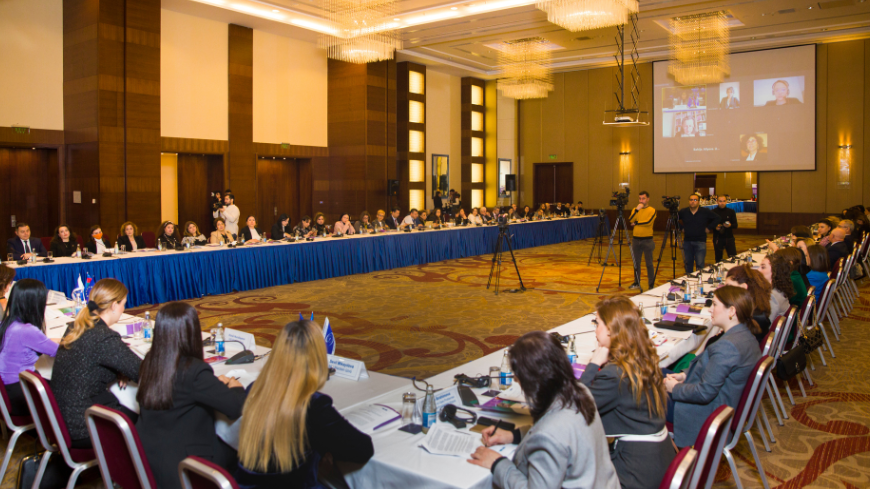On 22 February 2023, the Council of Europe brought together in Baku around 100 participants including Azerbaijani state institutions, members of parliament, representatives from civil society and international organisations for the final event of the project “Raising awareness of the Istanbul Convention and other gender equality standards in Azerbaijan”.
The morning session was dedicated to discussing the findings of the project’s study on protection orders in cases of violence against women and domestic violence in the Republic of Azerbaijan. This study aims to support the Azerbaijani authorities in enhancing the alignment of their legal and policy framework with international standards.
The afternoon session focused on reviewing the achievements and challenges of the project. Future co-operation was also discussed.
The project partners positively evaluated the effectiveness of the project and highlighted where further efforts are still needed. The strengthening of cooperation among different institutions was repeatedly mentioned as a need as well as the importance of school children being a specific target group of activities.
Among other achievements, the project:
- raised awareness of the Council of Europe Convention on preventing and combating violence against women and domestic violence (Istanbul Convention) and other gender equality standards, with more than 100.000 people reached through awareness raising campaigns and over 40 visibility materials produced, including thematic factsheets, brochures, reports, videos and the translation into Azerbaijani of existing publications;
- strengthened the capacity of national authorities to be able to better align national legislation and policy in line with international standards, through a gap analysis of the legislative and policy frameworks in the field of violence against women and domestic violence in Azerbaijan;
- enhanced the knowledge and skills of legal professionals, through the HELP online course on violence against women and domestic violence.
Although the project comes to an end, the impact of the activities implemented will go on thanks to the partnerships created with the stakeholders that have been involved in this project. Efforts initiated during this project are expected to continue with a new three-year project that is planned to start next month.
All publications produced under this project are available for download in Azerbaijani and in English here.
The project “Raising awareness of the Istanbul Convention and other gender equality standards in Azerbaijan” is funded by the European Union and the Council of Europe and implemented by the Council of Europe in their Partnership for Good Governance II 2019-2022.





